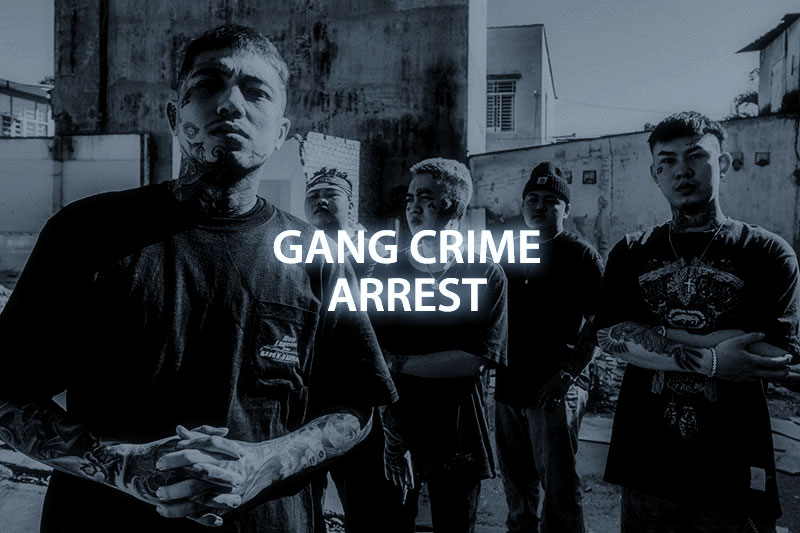In the vivid backdrop of California’s diverse landscape, the issue of gang involvement among the youth paints a troubling picture. This issue not only affects the individuals and their families but also casts a long shadow over the community’s safety and future. Understanding the legal implications of juvenile gang involvement in California requires delving into how the state defines gang participation, the severe consequences that follow, and the stark differences between the juvenile and adult court systems. This exploration sheds light on a complex issue at the intersection of youth, crime, and law, aiming to inform and navigate the depths of legal ramifications that young offenders face.
Defining Gang Involvement in California
California’s approach to gang involvement, particularly among juveniles, is outlined primarily in the California Street Terrorism Enforcement and Prevention (STEP) Act. This act defines a criminal street gang as any ongoing organization, association, or group of three or more persons, whether formal or informal, which has as one of its primary activities the commission of one or more criminal acts, and whose members individually or collectively engage in or have engaged in a pattern of criminal gang activity.
For juveniles, the inclusion in such groups can often be the result of seeking identity, protection, or even a sense of belonging. However, the legal system views their involvement through the lens of the potential for crime and disruption, leading to significant legal repercussions.
Severe Legal Consequences
The legal consequences of gang involvement for juveniles in California can be severe and far-reaching. Under the STEP Act, any crime committed in association with a gang is subject to enhanced penalties, often adding significant time to a sentence. This includes cases where juveniles are tried as adults, depending on the nature and severity of the crime.
Furthermore, the act allows for the documentation and tracking of known gang members, often resulting in heightened surveillance and law enforcement interactions. For juveniles, this can mean a stigmatizing label that follows them into adulthood, impacting education, employment, and other opportunities for rehabilitation and reintegration.
Juvenile vs. Adult Criminal Court
The distinction between the juvenile and adult criminal court systems in California is a testament to the state’s recognition of the need for different approaches to youth offenders. The juvenile court system emphasizes rehabilitation over punishment, focusing on providing guidance, education, and support services to divert youths from a life of crime.
In contrast, the adult system prioritizes punishment and is often less forgiving, with longer sentences and less emphasis on rehabilitation. Juveniles tried as adults face the stark reality of harsh penalties and the lasting impact of a criminal record.
Notably, California’s Proposition 57, passed in 2016, has aimed to provide judges, rather than prosecutors, the authority to decide whether a juvenile should be tried as an adult. This shift highlights the state’s effort to ensure that decisions affecting the futures of young offenders are made with consideration of their rehabilitation potential.
Contact Attorney Caryn Warren for Help!
The path of a juvenile involved in gang activities in California is fraught with legal complexities and severe consequences. The state’s definitions and punitive measures reflect a stringent stance against gang violence, aiming to curb the influence of gangs on its youth. However, the distinction between the juvenile and adult court systems underscores a crucial understanding: young offenders represent not just a challenge, but an opportunity for intervention and positive change.
By navigating these legal landscapes with a focus on rehabilitation and support, there lies a potential to rewrite the futures of many young individuals caught in the web of gang involvement. California’s evolving legal frameworks and systems serve as a guidepost for balancing the scales between punishing crime and nurturing redemption.
Personal Injury & Criminal Defense Services Available Throughout
Greater Sacramento, Yolo, Placer, and Solano Counties
Antelope, Arden-Arcade, Auburn, Benicia, Carmichael, Citrus Heights, Davis, Dixon, Elk Grove, Fairfield, Fair Oaks, Folsom, Galt, Gold River, Granite Bay, Iselton, Lincoln, Loomis, North Highlands, Orangevale, Rancho Cordova, Rio Linda, Rio Vista, Roseville, Rocklin, Sacramento, Suisun City, Vacaville, Vallejo, West Sacramento, Winters, Woodland

